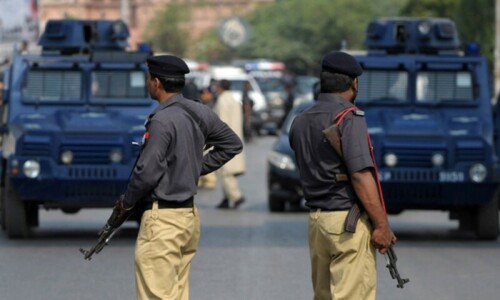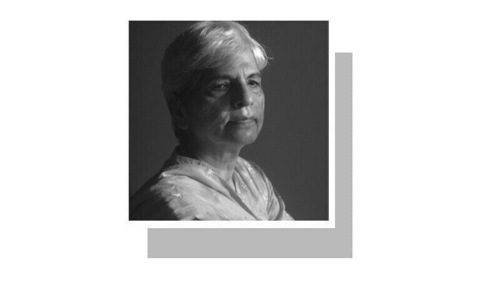• More supplies to arrive after June 20
• Pakistan gives PPE to Afghanistan
ISLAMABAD: Dispelling claims that there was severe shortage of Covid-19 vaccine and that people were unable to get their second shots on time, Special Assistant to the Prime Minister (SAPM) on Health Dr Faisal Sultan on Wednesday said around two million doses were available in the country.
He said more supplies would be arriving after June 20, adding that second shots, which were usually due after three to four weeks, could be delayed for six to seven weeks.
He pointed out that there was vaccine shortage across the globe and delays were being observed in a number of countries.
“Over 12 million doses have been administered across the country. As there were a large number of [around 2,000] vaccination centres, some might face shortage, but it did not mean that vaccine was not available in Pakistan,” Dr Sultan said while addressing a news conference.
According to reports, vaccine stocks had depleted in a number of vaccination centres in Sindh and Punjab due to which people were being requested to delay their doses for a few days.
The special assistant said there was more demand for vaccine at busy centres, therefore sometimes they faced shortage.
In such cases, vaccines were provided through load balancing or redistribution, he added.
“Shortage was being observed in some centres but the issue would be addressed in three to four days. I appeal to the masses to cooperate with the local authorities; we have two million doses at the moment and more supplies will arrive,” he said.
Dr Sultan said though second doses were administered within three to four weeks of the first dose, it did not matter if they were delayed for six to seven weeks.
“I want to remind people to keep wearing masks and maintaining social distancing,” he said.
Meanwhile, the National Command and Operation Centre (NCOC) reported 1,038 cases and 46 deaths in the last 24 hours. The positivity rate was recorded at 2.46 per cent.
As many as 305 patients were on ventilators throughout the country, with Multan recording the highest vent occupancy ratio at 42pc, followed by Bahawalpur, 28pc; Lahore, 23pc and Peshawar, 20pc.
The highest number of oxygenated beds were in use in Abbottabad at 32pc, Gilgit, 30pc, and Karachi and Swat, 25pc.
The number of active cases, which was over 90,000 in April, was 39,905 with 2,749 patients admitted to hospitals as of June 16.
PPE for Afghanistan
Pakistan on Wednesday handed over personal protective equipment (PPE) to Afghanistan.
SAPM Dr Faisal Sultan, Afghan Ambassador Najeebullah Alikhel and other officials were present on the occasion.
Mr Alikhel thanked the Pakistani government for its cooperation, saying Covid-19 was a major challenge for the region.
He said Afghanistan needed oxygen and other equipment to fight the virus.
Dr Sultan said the National Disaster Management Authority had played a major role in combating Covid-19.
Published in Dawn, June 17th, 2021
















































